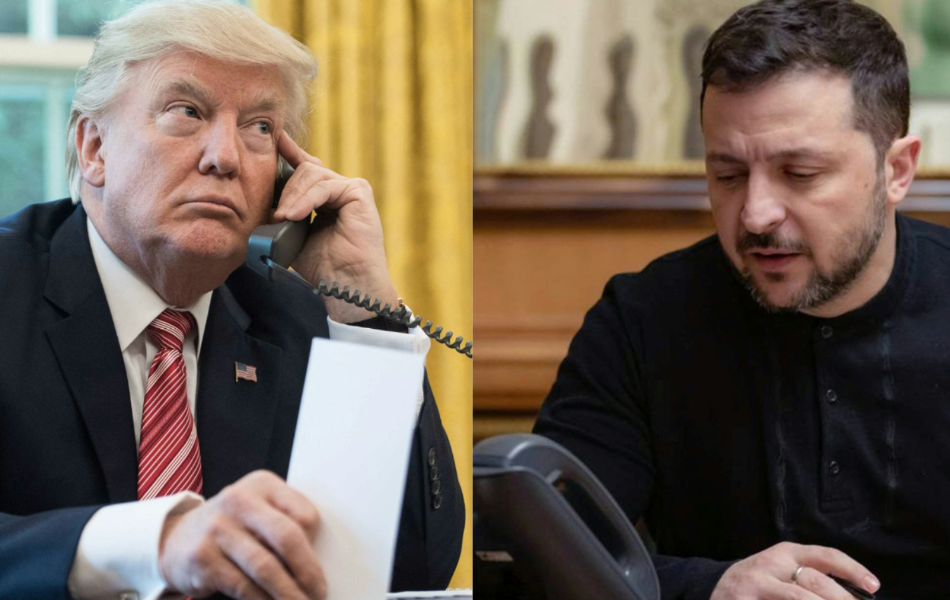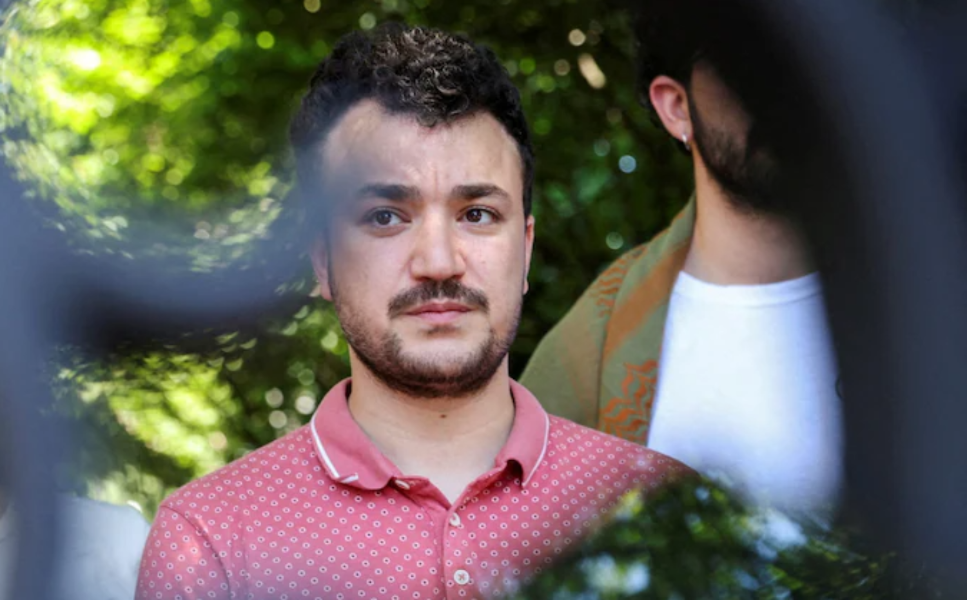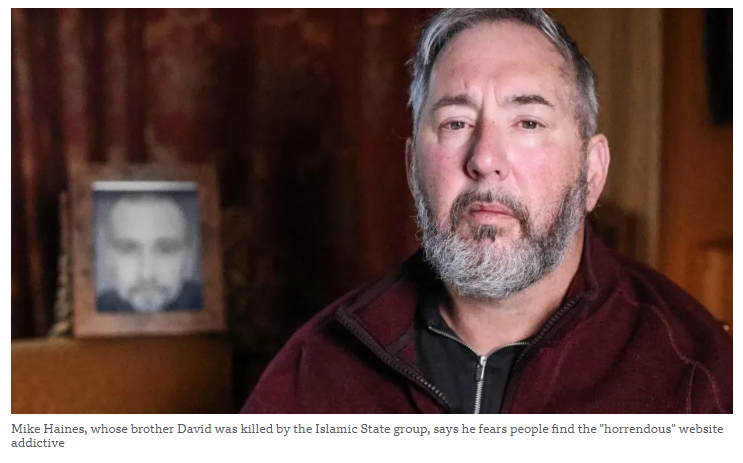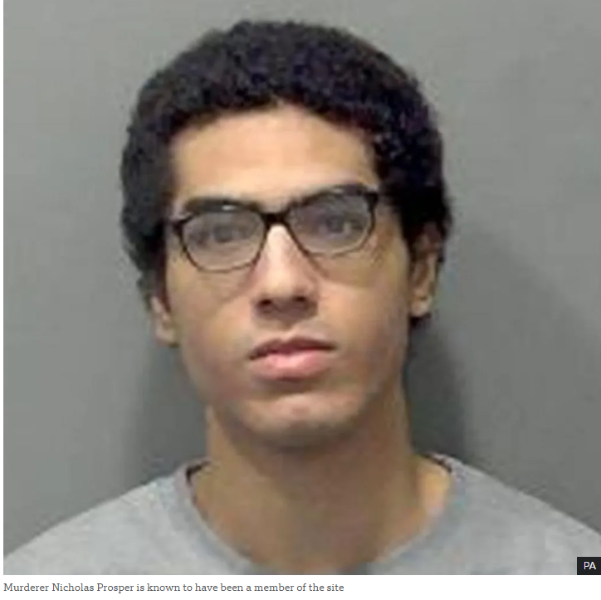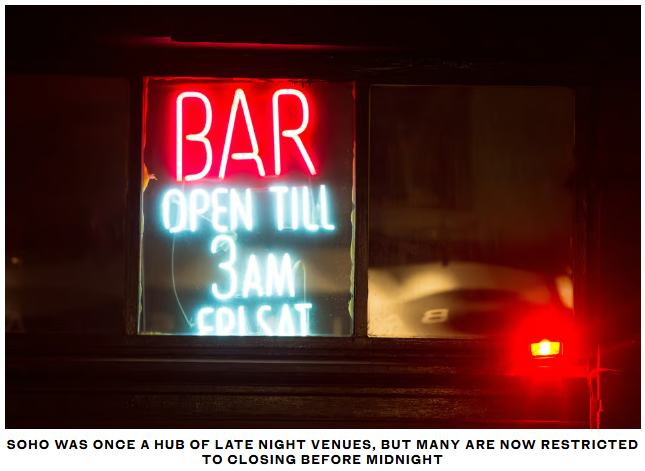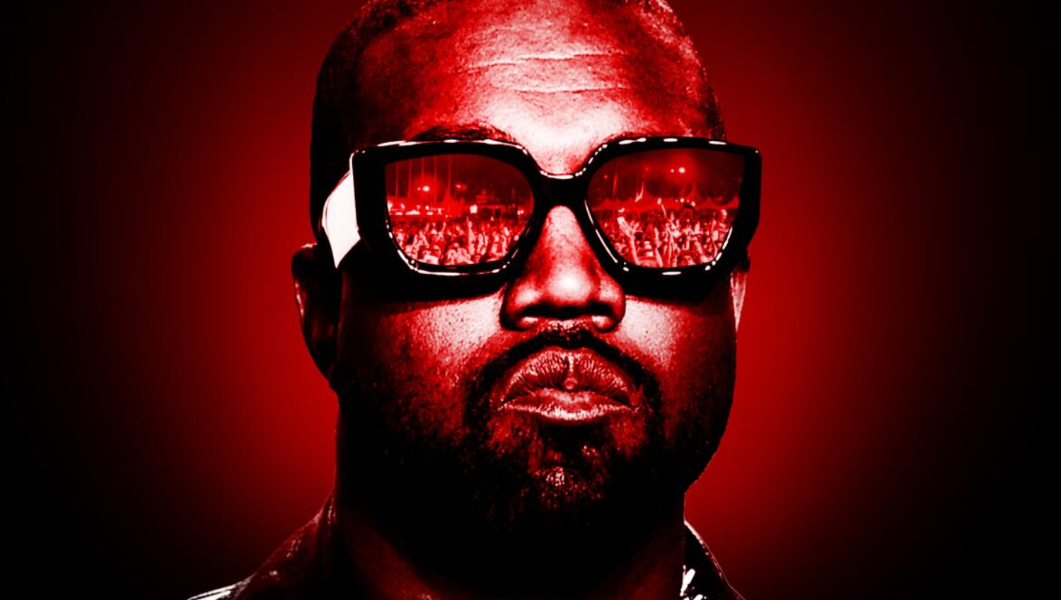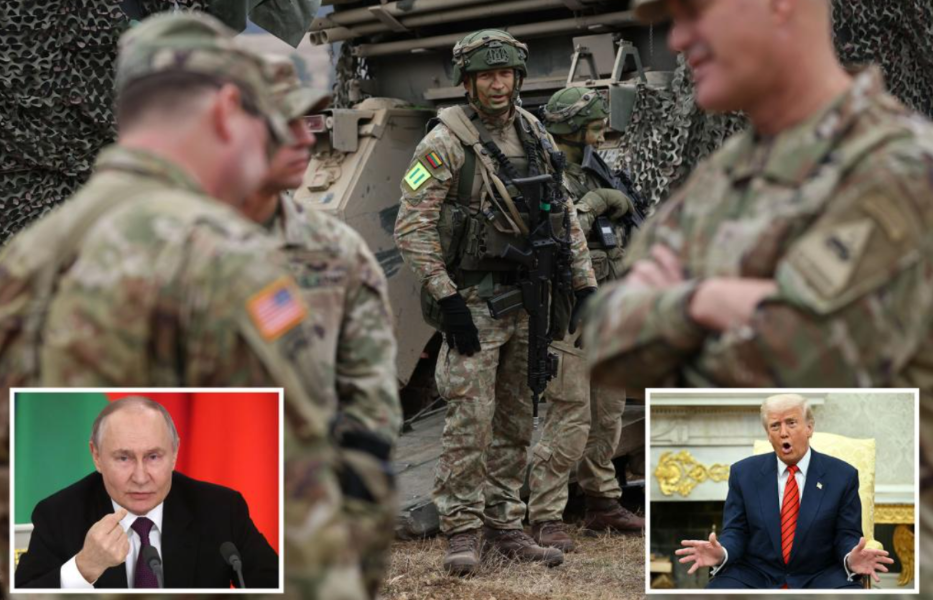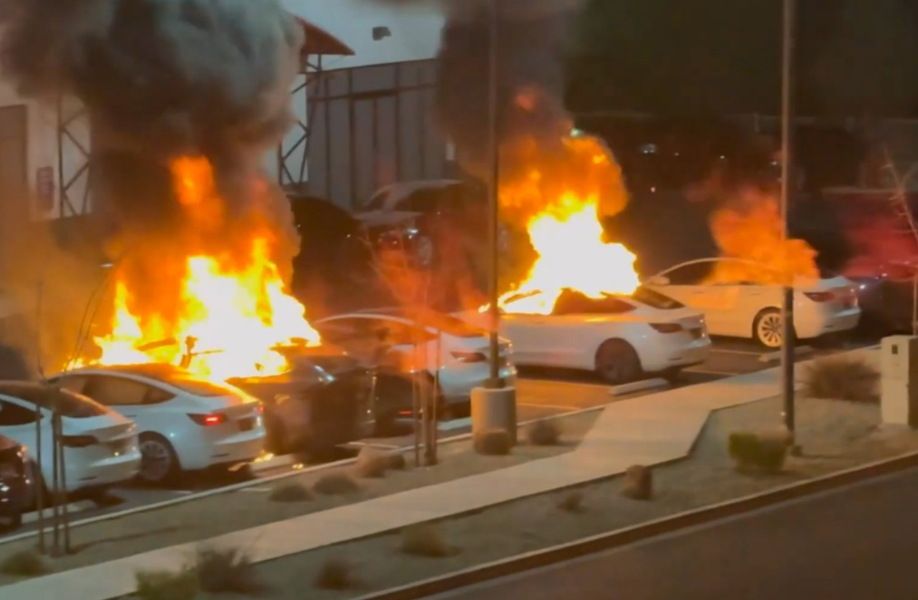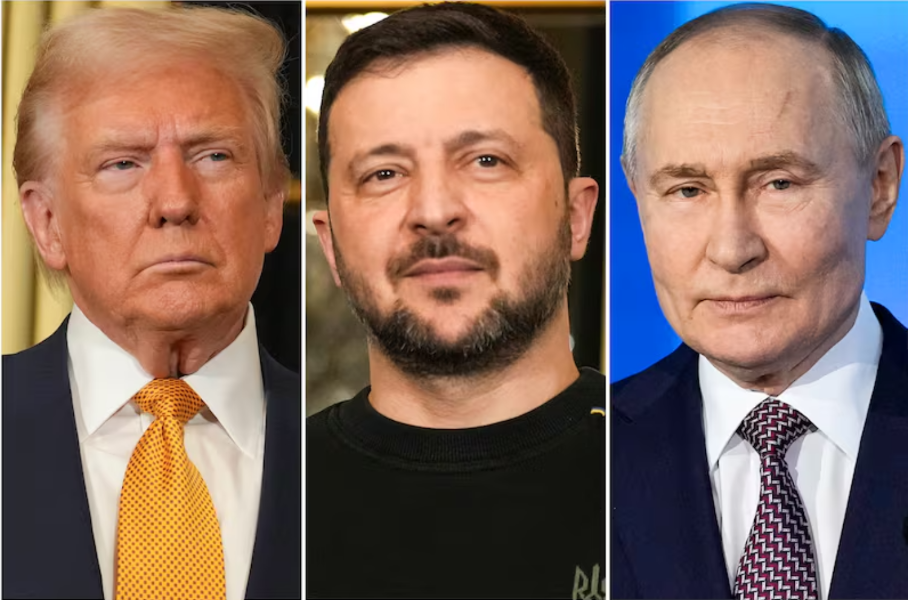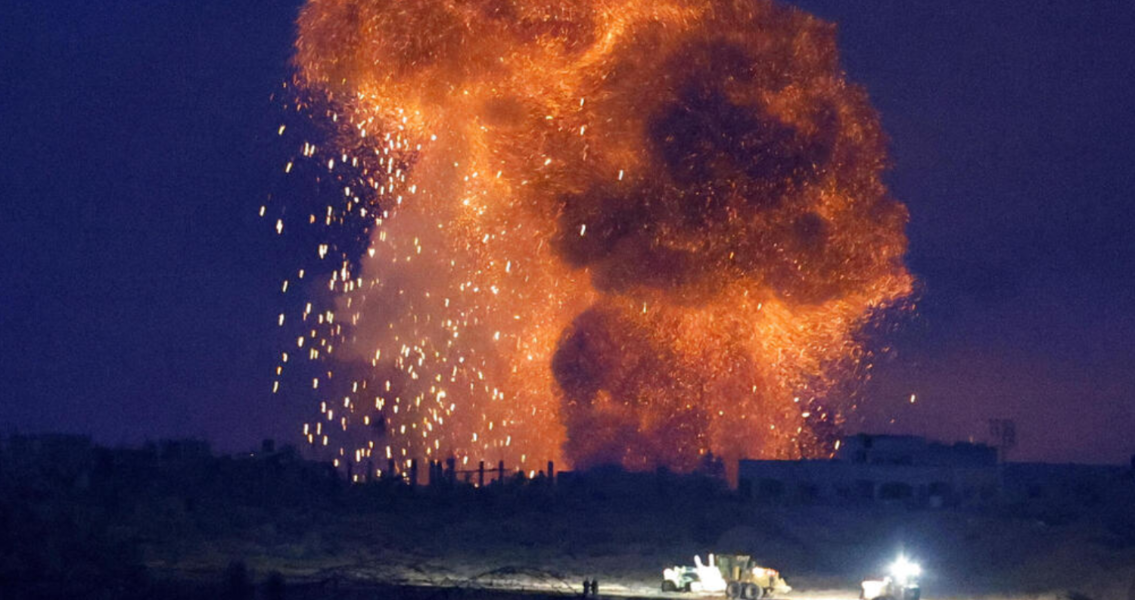-
Posts
10,778 -
Joined
-
Last visited
Content Type
Events
Forums
Downloads
Quizzes
Gallery
Blogs
Everything posted by Social Media
-

Teslas torched with Molotov cocktails and shot with gun
Social Media replied to Social Media's topic in World News
A lengthy off topic post that included numerous contraventions of forum rules and another off topic post threatening other members for placing emojis has been removed @KhunLA. A forum break has been added to read the rules again. -

Updates and events in the War in Ukraine 2025
Social Media replied to cdnvic's topic in The War in Ukraine
A number of posts repeating already posted information have been removed. The dedicated topic on Kursk is here: Nightmare in Kursk: Ukrainian Troops Recount Devastating Retreat An addtional off topic post referencing George Orwell, 1984 has been removed from the same poster @beautifulthailand99 -
Diplomatic relations can shift dramatically in just a few weeks, and today demonstrated how quickly the tone between world leaders can change. Presidents Volodymyr Zelensky and Donald Trump struck a notably positive note following their recent hour-long phone call, a stark contrast to the heated exchanges seen in the Oval Office last month. Although no media was present during the discussion, the official statements from both leaders indicated a more constructive dialogue. Zelensky described the conversation as "positive, very substantive and frank," and expressed admiration for Trump’s "concept of peace through strength." Statements from Secretary of State Marco Rubio and National Security Advisor Mike Waltz reinforced this sentiment, with spokesperson Leavitt stating that the conversation was "fantastic." Zelensky expressed gratitude for U.S. support, particularly regarding the provision of Javelin missiles, and emphasized that "lasting peace under President Trump's leadership can be achieved." The two leaders also addressed the ongoing conflict in Kursk, with Zelensky requesting additional air defense resources. A technical meeting is expected soon, aiming to progress toward a broader ceasefire in the Black Sea region. Trump reportedly suggested that "American ownership" of Ukraine’s energy infrastructure could be beneficial for the country. Providing further details on the call, Zelensky underscored his belief that "lasting peace can be achieved this year together with America, with President Trump, and under American leadership." He highlighted that an end to strikes on civilian and energy infrastructure was "one of the first steps toward fully ending the war," reaffirming Ukraine’s readiness to implement such measures. Additionally, Trump shared insights from his recent conversation with Russian President Vladimir Putin, while Zelensky updated him on battlefield developments and the impact of Russian attacks. Later Secretary of State Marco Rubio issued a more detailed statement, saying that Trump had agreed to help Ukraine source additional air defence systems, particularly in Europe. The two leaders "agreed to share information closely between their defence staffs as the battlefield situation evolved", he said. Technical teams would meet in Saudi Arabia in the coming days to discuss broadening the ceasefire to the Black Sea, Rubio added, saying they agreed that this could be the first step towards fully ending the war. Trump also raised the possibility of the US taking ownership of Ukraine's power plants, adding that it would be the "best protection" for Ukraine's energy infrastructure, Rubio said. Zelensky described his conversation with Trump as "positive", "frank", and "very substantive". The two presidents agreed to maintain communication at the highest level, ensuring that their teams collaborate on "all necessary aspects of advancing toward lasting peace and security guarantees." Leavitt reiterated that Zelensky had thanked the U.S. for its continued support, particularly in military assistance, and emphasized that the focus had shifted from previous discussions, such as the minerals deal, to broader peace negotiations. With both leaders portraying the conversation in a positive light, the diplomatic landscape appears to be moving toward renewed efforts for stability. As discussions continue, the possibility of achieving lasting peace remains on the horizon, with Ukraine and the United States pledging to work closely together in pursuit of that goal. Based on a report by BBC News 2025-03-20
-

Thai PM Responds to US Visa Ban Uncertainty Amid Uyghur Deportation
Social Media replied to webfact's topic in Thailand News
@MalcolmB another post on Gaza, any more off topic and you will be removed -

Thai PM Responds to US Visa Ban Uncertainty Amid Uyghur Deportation
Social Media replied to webfact's topic in Thailand News
An off topic post referring to unsubstaniated claims in Gaza has been removed @MalcolmB -
The distinction between free speech and inciting hatred is under scrutiny as the U.S. government continues its moves to deport Mahmoud Khalil, a Columbia University student and green card holder, for his alleged support of Hamas. While critics argue this is an attack on political expression, officials maintain it is necessary to uphold safety and American values. "When you apply for a U.S. visa, you are a guest. You must make certain assertions... If you state that you're coming to the U.S. to participate in pro-Hamas events, that contradicts the foreign policy interests of the United States." The BBC’s coverage of Khalil’s case presents him as a student targeted by the Trump administration for expressing pro-Palestinian views. It also suggests that his arrest and impending deportation are driven by Islamophobia, racism, and alleged influence from pro-Israel groups. However, Secretary of State Marco Rubio made it clear that the administration is acting against individuals it identifies as Hamas supporters in the United States. House Speaker Mike Johnson emphasized the threat posed by anti-Israel protests on campuses, recalling his visit to Columbia University. “I went to face down the angry mob at Columbia at the height of that stuff... and it was dangerous,” said Johnson. “I met with Jewish students who were hauled away off campus because they were instructed not to come to class for fear of their physical safety.” While U.S. citizens cannot be deported, foreign nationals like Khalil fall within the administration’s authority. Khalil, a Syrian-born Palestinian who served as a spokesperson for the Columbia protests, is among those being removed for allegedly making college campuses and cities hostile for Jewish students. Rubio framed the policy as a deterrent to violent anti-Semitism disguised as anti-Zionism. He also positioned it as part of a broader effort to preserve America’s foundational Enlightenment values, warning that these principles are eroding at an alarming rate. Khalil’s involvement with Columbia University Apartheid Divest, the group behind the protests, has raised concerns. The organization openly declared on Instagram that it seeks the “total eradication of Western civilization.” Jewish students at Columbia reported feeling unsafe, with many locking themselves in dorm rooms or being forced to move out due to conflicts with pro-Palestinian roommates. “Most of the Jewish students literally locked themselves in dorms, those who were lucky to share the room with a sane student. But those who had [pro-Palestine] room-mates had to move out, while we paid not just for the school, but for the dorms as well. It was the worst student year any Jewish/Israeli ever imagined.” Khalil’s wife, Noor Abdalla, is now speaking out about his arrest. In an interview with Reuters, she revealed that Khalil had anticipated the possibility of being detained. “I didn’t take him seriously. Clearly I was naive,” said Abdalla, who is a U.S. citizen and expecting their first child next month. NBC News obtained a document stating that Khalil is “subject to removal from the United States,” with officials arguing that his presence poses “serious adverse foreign policy consequences.” Abdalla met Khalil in Lebanon in 2016 while volunteering for a nonprofit that provided educational scholarships to Syrian children. They maintained a long-distance relationship before marrying in 2023. She defends her husband’s actions, telling Reuters, “Mahmoud is Palestinian and he's always been interested in Palestinian politics. He's standing up for his people, he's fighting for his people.” White House Press Secretary Karoline Leavitt countered these claims, stating that Khalil led disruptive protests, harassed Jewish students, and spread pro-Hamas propaganda. “Khalil organized group protests that not only disrupted college campus classes and harassed Jewish American students and made them feel unsafe on their own college campus, but also distributed pro-Hamas propaganda, fliers with the logo of Hamas.” Related Topics: Democrats Face Backlash for Supporting Arrested Palestinian Activist Mahmoud Khalil Federal Education Department Investigates 60 Universities Over Antisemitism Allegations Trump’s Bold Stand Against Campus Antisemitism Sends a Clear Message Trump Border Czar: ICE Will ‘Absolutely’ Deport Legal Immigrants Trump Threatens to Cut Federal Funding Over Campus Protests U.S. State Dept to Use AI to Revoke Visas of Foreign Students with Alleged Ties to Hamas Based on a report by The Telegraph 2025-03-19
-
Amanda Spielman, the former head of Ofsted, has launched a scathing critique of Education Secretary Bridget Phillipson’s proposed reforms, accusing her of prioritizing the interests of teaching unions over those of children. Writing in The Telegraph, Spielman urged Phillipson to reconsider her policies “before the damage is done.” Her comments come as the Children’s Wellbeing and Schools Bill returns to Parliament, with critics arguing that the proposed reforms will significantly reduce the autonomy of academies—state-funded schools that set their own curriculum and pay structures. These institutions have long been unpopular with some teaching unions, and Spielman believes Phillipson’s approach is driven by a desire to appease them. “It is hard to understand the motivation, beyond being seen to be different, though the new minister is clearly giving a great deal of time and attention to the desires and demands of unions,” Spielman wrote. “And alas, unions will always defend the interests of the adults in schools over those of children... I do hope she will think again, before the damage is done.” She expressed astonishment at the rapid pace at which Phillipson is overhauling key elements of the current education system, describing it as an unnecessary dismantling of progress made over the past 25 years under various governments. She argued that England has seen a steady improvement in international student achievement rankings and is now regarded as a high-performing country compared to Scotland and Wales. Spielman also highlighted England’s relatively strong record in supporting disadvantaged children, though she noted that more attention could be given to higher-achieving students. “There is much interest from other countries in what has been achieved in England, and in learning from us,” she said. “Just in the past year I have been working in Flanders and in the UAE, visited Australia, and talked to people in Poland and the USA. They are as astonished as I am by the speed and thoroughness with which Bridget Phillipson has moved to dismantle every main pillar of the system.” Spielman warned that reducing school autonomy would be detrimental to educational outcomes, arguing that a better approach would be to conduct a proper evaluation before making sweeping changes. “Most obviously, the schools bill will cut the autonomy of schools and school groups right back, even though this has clearly been a contributor to system success,” she said. “A better first step would have been a proper evaluation to see which dimensions of autonomy should be protected and which need adjusting.” She also criticized changes to Ofsted inspections, asserting that unions have long resented the existence of inspections and their consequences. “The unions’ real beef about inspection is that it exists at all, and that government uses inspection information to apply consequences,” she said. “No matter how well Ofsted does its job, the union narrative will always be negative. Yet to please unions, both inspection processes and outcome reporting are being watered down to make it much less likely that inspection will detect weaknesses or convey a negative message.” Spielman expressed concerns over potential changes to the national curriculum, arguing that while it is not perfect, it has played a key role in improving the education system. She suggested that the ongoing Curriculum and Assessment Review may lead to a lowering of academic expectations in an attempt to motivate lower-attaining students. “It may propose leaning more heavily on the distorted ‘equivalences’ used in school performance tables, whose main purpose is to make it look as though lower-attaining children taking non-GCSEs are doing better than they really are. Levelling down, in other words.” She also raised concerns about teacher training, warning that current high standards could be jeopardized. “We have a strong suite of training standards grounded in the best available evidence of what constitutes good teaching and wider good practice in schools. These have been placed under review, casting the future of all teacher training and development into uncertainty.” Additionally, Spielman criticized the increased centralization of education, arguing that greater government control over school improvement efforts is unlikely to be effective. “The Department for Education will have bigger budgets, bigger teams of officials and more powers to manage all interventions and improvement work in schools, despite little evidence that micro-managing individual school improvement from the centre of government is effective.” She blamed education union leaders and activists for driving these changes, claiming that they do not represent the majority of teachers. Despite this, she noted a lack of widespread concern from parents, warning that they may not yet fully grasp the implications of the reforms. “It will probably take a while for parents to see through the polished verbiage and jazz hands that accompany every announcement. But unless they do see through it, and exert enough pressure to counteract union dominance, it is current and future generations of children—the people who were most harmed by lockdowns—who will bear the brunt of these changes.” Spielman urged Phillipson to avoid following the example of countries such as Portugal and Spain, where she claims that effective education reforms were reversed by left-wing governments with “predictable consequences.” “Does Bridget Phillipson really want to align herself with Portugal and Spain, where effective education reforms were reversed when Left-wing governments came in, with predictable consequences? I do hope she will think again, before the damage is done.” Based on a report by The Telegraph 2025-03-19
-
Calls Grow to Shut Down ‘Vile’ Death Video Site as Ofcom Gains New Powers Bereaved families are demanding that Ofcom take action against a "vile" website that showcases videos of their loved ones' deaths. The site, which will not be named, has amassed over three million members and contains thousands of graphic images and videos of real-life murders, suicides, and extremist executions. According to the BBC, some former members of the site have gone on to commit school shootings and other violent crimes. As of Monday, Ofcom has been granted new powers to combat illegal content under the Online Safety Act, which includes material promoting terrorism or banned extremist groups. However, despite these strengthened regulations, it is uncertain whether the site can be shut down entirely. The website's administrators have stated that they will give their "full attention" to any requests made by Ofcom. Under the new law, platforms must demonstrate they have systems in place to remove illegal content, and failure to comply could result in court orders to block sites or fines of up to £18 million. Additionally, by the summer, all sites must introduce strict age verification measures to prevent children from accessing harmful content. However, critics argue that the law lacks strength and that Ofcom is not being assertive enough in its enforcement. Mike Haines, whose brother David was murdered by the Islamic State (IS) in Syria in 2014, has condemned the website. The full, uncensored video of David’s murder remains accessible on the site. Mr. Haines describes the platform as "vile" and says its content is "horrifying." He is particularly alarmed by the lack of effective age verification, fearing for the impact on young viewers. "It's like a drug," he warns. "Once you've had your first taste, you want another taste. So you want to see more, and it becomes more violent and more graphic and more disgusting." David Haines' daughter, Bethany, is equally distressed. "For years I have been trying to keep track and report sites such as this one. I have a fear that my son will one day see the video of his grandfather." Mr. Haines insists that authorities must act immediately. "Every second that we delay in shutting this site down, we are endangering our youth." Since the Online Safety Act was passed 18 months ago, Ofcom has been developing the codes of practice that platforms must now adhere to. The regulator can now investigate and penalize sites that host illegal material. The website categorizes its videos into different sections, including executions by extremist groups, people being burned alive, decapitated by vehicles, and individuals crushed by trains. While not all content on the site is considered illegal, experts warn that exposure to such violent imagery can desensitize viewers and contribute to radicalization. An investigation into user accounts has uncovered links between the website and known extremists. Among its former users are two teenagers who carried out school shootings in the US. In December, 15-year-old Natalie Rupnow opened fire at her conservative Christian school in Madison, Wisconsin, killing two people and injuring six. The following month, 17-year-old Solomon Henderson carried out an attack in a school cafeteria in Antioch, Tennessee, killing one student and injuring another before taking his own life. Both had been active members of the website, which even offers a "school shooting compilation" video. The UK has also seen a connection between the site and violent crime. Nicholas Prosper, 19, who pleaded guilty to the murders of his mother and two siblings, was a member. When police arrested him in September last year, they discovered a shotgun and 30 cartridges nearby, leading authorities to believe he was planning an attack on his former primary school in Luton. Prosper had expressed an interest in mass shootings, particularly the infamous 1999 Columbine High School massacre. Dr. Olivia Brown, an expert in radicalization and extremism at the University of Bath, warns of the dangerous effects of repeatedly viewing violent content. "What might have seemed like an impossible solution to what someone might be feeling, would then become something that might feel like a viable option," she explains. For grieving families, the existence of this site is profoundly distressing. However, a significant challenge for Ofcom is that the site is hosted in the US, and both its owner and administrators remain anonymous. Based on a report by BBC 2025-03-19
-
Soho's Nightlife Under Fire: Legal Battles and "Quiet Nights" in Westminster London’s Soho, long celebrated as the heart of the city’s nightlife, is now at the center of a heated debate over late-night opening hours. As Westminster Council pushes forward with its new “After Dark” strategy, designed to create a more sensory-friendly environment with "quiet nights," reduced noise levels, and designated calm zones, legal battles over licensing restrictions are beginning to unfold. Westminster Council introduced its first-ever “After Dark” strategy this week, acknowledging concerns that the city’s nightlife is being stifled by increasing bureaucracy and rising costs. The draft policy aims to foster a more inclusive and accessible nighttime experience by urging venues to embrace quieter atmospheres with dimmed lighting and lower volume levels. For over a century, Soho has been the epicenter of London’s entertainment scene, boasting an array of renowned nightclubs, theatres, LGBTQ venues, and live music spaces. However, in recent years, the district has been caught in a struggle between business owners seeking to extend operating hours and residents raising concerns about noise and disruption. Rising rents, staff shortages, and licensing restrictions have added to the challenges for venue operators. Currently, under Westminster Council’s “core hours” policy, new establishments in much of Soho must close by 11:30 PM on weekdays, midnight on Fridays and Saturdays, and 10:30 PM on Sundays. These regulations have sparked backlash from business owners, particularly in cases like the proposed Blue Note Jazz club in St. Martin’s Lane near Leicester Square. The venue sought permission to remain open until 1 AM but faced resistance from the Metropolitan Police, Environmental Health, and local residents, who all objected to the late-night hours. In response, the Westminster Licensing Committee ruled against the club’s request, citing concerns about public nuisance. “The [Licensing] Committee were concerned that granting a licence for the hours requested would undermine the prevention of public nuisance licensing objective and therefore granted a licence limited to core hours,” the council stated. As part of its broader strategy, Westminster Council aims to balance economic vibrancy with public safety. The draft policy highlights measures to improve security, particularly for women, and combat anti-social behavior through increased CCTV surveillance. However, one of the most controversial proposals involves imposing a levy on late-night businesses that sell alcohol, such as pubs and nightclubs, to help fund these initiatives. Similar levies in cities like Nottingham and Cheltenham were scrapped after failing to improve nightlife or safety, and in 2023, a House of Lords committee concluded that such policies had not been successful in practice. Whether Westminster’s approach will prove any different remains to be seen. As the battle over Soho’s nightlife continues, venue owners, residents, and policymakers remain at odds over how best to preserve the area’s legendary after-dark culture while addressing the needs of the community. Based on a report by The Standard 2025-03-19
-
Kanye West has once again ignited backlash after announcing an open casting call for his latest project, a choir known as "The Hooligans." The 47-year-old rapper, already under intense scrutiny for his previous anti-Semitic remarks, shared the details of the audition on X (formerly Twitter) on Saturday night, sparking widespread outrage. "THE HOOLIGANS Open casting call for volunteers," the post read. "Ye is putting together a hooligan choir to give the sound of the Vultures number one song Carnival." However, the eligibility criteria quickly raised eyebrows. "Those interested in joining must be men and fit. NO FAT PEOPLE," the announcement specified. Further adding to the controversy, the casting call required participants to have "the skin complexion of Sean Combs and darker." This exclusionary requirement drew immediate criticism, with many accusing West of engaging in discriminatory behavior. West, who has been a vocal supporter of Sean 'Diddy' Combs despite the latter facing federal charges of racketeering and sex trafficking, even featured what appeared to be a recorded conversation between them in his latest track, Lonely Roads Still Go to Sunshine. The choir members are also required to have shaved heads or be willing to shave them if selected. However, the most shocking detail was the final stipulation: they "MUST BE COMFORTABLE WEARING SWASTIKAS." West, who has faced condemnation for his previous remarks about Hitler and Nazis, introduced a line of T-shirts featuring swastikas in February, further fueling concerns over his extremist rhetoric. The response to the casting call was swift and harsh. While some mocked the unusual requirements, others expressed outrage. "Not dark or skinny enough, damn," one person sarcastically remarked. Another furious commenter wrote, "This is straight-up clown behavior. If you’re begging for attention this hard, you’ve already lost. Swastikas? Fat-shaming? Obsessing over skin color? You sound like a joke trying way too hard to be edgy. Nobody with self-respect would waste their time on this garbage." A particularly scathing response read, "JEWISH lives matter, BLACK lives matter, fk slavery, fk yo NARCISSISM and also—son—f**k you." The outrage extended beyond social media, with Anti-Defamation League (ADL) CEO and National Director Jonathan Greenblatt strongly condemning West’s actions. Speaking to Daily Mail, Greenblatt stated, "There is no excuse—none—for praising Hitler. Glorifying a genocidal dictator with swastika merch is not 'edgy' or 'controversial.' When someone with Kanye’s influence spreads Nazi glorification, it emboldens extremists. It’s unacceptable and downright dangerous." West’s actions continue to alienate fans and industry professionals alike, with many questioning whether his behavior is a calculated attempt to stay in the public eye or a genuine descent into extremism. Regardless, the backlash against his latest move shows no signs of slowing down. Based on a report by Daily Mail 2025-03-19
-
UK Spends £99 Million on Electric Cooking Initiatives in Africa and Asia British taxpayers are funding a £99 million initiative aimed at encouraging families in Africa and Asia to adopt electric cooking. The project, which falls under the UK’s foreign aid programme, is designed to improve health and environmental conditions by reducing reliance on firewood and charcoal, both of which contribute to pollution. More than £55 million has already been spent on the Modern Energy Cooking Services (MECS) project, and the Foreign Office recently approved nearly doubling its budget, extending its operation until the end of the decade. The majority of this funding is allocated to Loughborough University, which is conducting extensive research on clean cooking solutions. By 2030, the university is expected to produce 650 reports on the subject. As part of its efforts, researchers have also developed 'eCookbooks' to guide families in preparing traditional meals with electric appliances and created a 'multi-dimensional framework to assess and monitor gender equality, equity, and women's empowerment.' Additionally, the programme includes the distribution of 20,000 electric pressure cookers in Tanzania and Uganda, with a smaller number of air fryers being handed out in other countries. However, the initiative has faced criticism from some quarters, with concerns being raised about the use of taxpayer money on foreign aid projects that may not deliver tangible benefits. Joanna Marchong, Investigations Campaign Manager at the TaxPayers' Alliance, expressed her concerns, stating, "Taxpayers will be furious at the frittering away of their cash on frivolous foreign aid projects. Too many of these costly schemes look like little more than virtue-signalling exercises rather than genuine humanitarian assistance which saves lives." The future of the MECS project is now uncertain following a recent announcement by Sir Keir Starmer that the UK’s aid budget will be reduced to accommodate increased defence spending. A spokesperson from the Foreign Office commented, "The UK is taking a rigorous approach to ensure all ODA [Official Development Assistance] delivers value for money for the taxpayer. Detailed decisions on how the ODA budget will be used will be worked through as part of the ongoing Spending Review." Loughborough University, which remains at the forefront of the initiative, responded to the potential budget cuts, saying, "The university remains committed to the MECS project. At this stage, we have no information on whether cuts to UK Official Development Assistance will affect our programme moving forward." With the debate over foreign aid spending continuing, the programme’s long-term viability remains uncertain. However, for now, the UK government maintains its commitment to promoting clean cooking in developing countries. Based on a report by Daily Mail 2025-03-19
-
Speaking to The Post from Warsaw, Poland, Vaidotas Urbelis, Lithuania’s defense policy director praised Trump for accelerating Europe’s response to security threats. He highlighted how, under Biden, decision-making was often delayed. “In political life, people tend to delay decisions — ‘OK, maybe we’ll do it after one year, maybe after two years,’” Urbelis said. “And the current language of the US administration says to Europe, ‘Do it now, make decisions right now, because that’s your responsibility.’” The recent emergency leaders’ summit in Brussels underscored this shift in approach, reinforcing the idea that Europe must take primary responsibility for its own defense. Lithuania, a small nation bordering the Russian exclave of Kaliningrad and Belarus, has been at the forefront of this transformation. In January, Lithuania pledged to increase its defense spending to 6% of its GDP, becoming the first NATO country to meet Trump’s call for a 5% defense commitment. Currently, Lithuania allocates just over 3% of its GDP to defense. The Baltic nations—Estonia, Latvia, and Lithuania—have been among the most proactive NATO members in strengthening their military capabilities, recognizing their vulnerability to Russian aggression. However, their total defense budget for 2024 is approximately $5.2 billion, less than half the cost of a single U.S. aircraft carrier. None of these nations possess a single fighter jet, making their collective military capability relatively small. Given these challenges, Urbelis advocates for a united front against Russia. Echoing remarks made by Lithuania’s Defense Minister Dovilė Šakalienė in a Fox News interview, he reinforced the need for Europe to apply unrelenting pressure on Moscow. “When you talk to Russia, it’s not like normal negotiations, that you offer something and your opponent also makes concessions and you agree in the middle,” Urbelis explained. “It’s not the way Russia negotiates. If you offer something, they will ask for more. If you offer concessions, they understand that as a sign of weakness. That’s why you must put huge pressure on them, militarily, economically, financially, so that they agree on a solution that is acceptable to all. That’s what we mean by negotiating by having a gun on the table, because they don’t understand the language.” Urbelis pointed out that Northern European nations, including Sweden, Finland, Denmark, and the United Kingdom, are rapidly ramping up their defense efforts. “Northern Europe is moving extremely fast,” he said. “Because we are most exposed and we know what Russia means. We have lived with Russians for centuries. We know how they behave and how they negotiate.” However, he warned that the rest of Europe must follow suit. “The most important kind of test will be numbers. What countries put on the table,” he said. “If we’re still below 2% [of GDP], that’s not serious.” At the same time, he stressed the importance of NATO unity, cautioning against divisions that Russia could exploit. “We should not sacrifice unity. Because what Russia wants is to divide NATO.” Discussions continue over whether NATO countries will deploy troops to Ukraine and what their mandate would be. Urbelis emphasized that rules of engagement must be clearly defined. “What is even more important is not just the number of troops, but what are the rules of engagement,” he said. “If someone was to engage these forces, the response must be immediate and violent.” He underscored the necessity of U.S. involvement, arguing that a strong American presence would deter Russian violations of any ceasefire or peace deal. “That’s why we need as many countries as possible and some kind of U.S. involvement. People use that word, U.S. backstop. But Russians would not dare to violate that agreement because what Russia is good at is violating all cease-fires and all peace deals,” he continued. “So not for a second can we assume that Russians will honor this cease-fire or peace agreement. Not for a second.” As Europe accelerates its defense preparations, Trump’s firm stance has undeniably reshaped the geopolitical landscape, forcing NATO to confront security threats with new urgency. Based on a report by NYP 2025-03-19
-

Russia Rejects Trump's Temporary Ukraine Ceasefire Offer
Social Media replied to Social Media's topic in World News
Update to Topic: Putin agrees to 30-day halt on energy facility strikes, Ukraine signals support -
A row of Tesla vehicles erupted in flames at a Las Vegas service center early Tuesday in what authorities suspect was an arson attack. The dramatic blaze, captured on video, showed the high-end electric cars engulfed in fire, with one vehicle exploding into a massive fireball—seemingly triggered by its lithium battery, according to footage obtained by the Las Vegas Review-Journal. Las Vegas police confirmed they are investigating the fire as an act of arson. Photos from the scene revealed that someone had painted the word “RESIST” in large red letters across the Tesla Collision Center in Enterprise, just a few miles from the Las Vegas Strip. “Communications received information that an individual had set several vehicles on fire in the parking lot and caused damage to the property,” police stated in an email. During a media briefing on Tuesday morning, Assistant Sheriff Dori Koren of the Las Vegas Metropolitan Police Department (LVMPD) said that at least five Tesla vehicles were torched, and three rounds were fired into the cars. A 911 caller reported hearing gunshots and witnessing a person dressed in black igniting the vehicles. Additionally, investigators discovered a non-ignited Molotov cocktail at the scene. “I’d like to point out this was a targeted attack against a Tesla facility,” Koren stated, adding that police will be increasing their presence at Tesla locations throughout Las Vegas. The incident has drawn strong condemnation from law enforcement officials. “Violent acts like this are unacceptable,” said FBI Special Agent Spencer Evans, who heads the agency’s Las Vegas office. He warned that those considering similar actions should understand the severity of the crime. “To those who might think that something like this is justifiable or potentially even admirable, we want to let you know it’s a federal crime. We will come after you. We will find you.” The attack in Las Vegas comes amid a wave of vandalism targeting Tesla facilities and vehicles. Just 22 hours earlier and about 300 miles away in San Diego, sheriff’s deputies discovered multiple Tesla cars defaced with swastikas at a local dealership. Officials said that several dealership windows were also spray-painted with swastikas and profanity. Meanwhile, in another suspected arson case, two Cybertrucks were damaged by fire at a Tesla dealership in Kansas City, Missouri. Authorities there, including the FBI and the Bureau of Alcohol, Tobacco, Firearms and Explosives (ATF), are investigating. “Similar incidents have occurred in several states and the FBI and ATF are coordinating with federal, state, and local law enforcement partners to gather information,” FBI Kansas City said in a statement Tuesday. While investigators work to determine whether the attacks are connected, the incidents highlight a growing trend of hostility toward Tesla. The company’s CEO, Elon Musk, has been a polarizing figure in recent years, though it remains unclear whether he was the intended target of these actions. Based on a report by NYP | NBC News 2025-03-19
- 220 replies
-
- 12
-

-

-

-

-
Russian President Vladimir Putin agreed on Tuesday to U.S. President Donald Trump's proposal for a month-long halt to strikes against energy infrastructure in Ukraine, a limited ceasefire that Kyiv quickly said it would be willing to consider. Talks aimed at advancing toward a broader peace plan will begin immediately, the White House said following a lengthy call between the two leaders, but it was unclear whether Ukraine will be involved. Putin ordered the Russian military to stop attacks against energy sites after speaking with Trump, the Kremlin said in a statement. But he again raised concerns during the call that a temporary ceasefire might allow Ukraine to mobilize more soldiers and rearm itself. Putin also emphasized that any resolution of the conflict would require an end to all military and intelligence assistance to Ukraine, the Kremlin added. Ukraine President Volodymyr Zelenskiy said his country would consider supporting the U.S. proposal to stop strikes on energy infrastructure. "I think it will be right that we will have a conversation with President Trump and we will know in detail what the Russians offered the Americans or what the Americans offered the Russians," Zelenskiy told reporters during an online briefing. Negotiations on a maritime ceasefire in the Black Sea, as well as a more complete ceasefire and a permanent peace deal, will commence immediately in the Middle East, the White House said in a statement, though it did not say whether Ukraine would be invited. The White House's statement in full Today, President Trump and President Putin spoke about the need for peace and a ceasefire in the Ukraine war. Both leaders agreed this conflict needs to end with a lasting peace. They also stressed the need for improved bilateral relations between the United States and Russia. The blood and treasure that both Ukraine and Russia have been spending in this war would be better spent on the needs of their people. This conflict should never have started and should have been ended long ago with sincere and good faith peace efforts. The leaders agreed that the movement to peace will begin with an energy and infrastructure ceasefire, as well as technical negotiations on implementation of a maritime ceasefire in the Black Sea, full ceasefire and permanent peace. These negotiations will begin immediately in the Middle East. The leaders spoke broadly about the Middle East as a region of potential cooperation to prevent future conflicts. They further discussed the need to stop proliferation of strategic weapons and will engage with others to ensure the broadest possible application. The two leaders shared the view that Iran should never be in a position to destroy Israel. The two leaders agreed that a future with an improved bilateral relationship between the United States and Russia has huge upside. This includes enormous economic deals and geopolitical stability when peace has been achieved. Kremlin's statement on possible 30-day ceasefire on energy infrastructure Here's a snippet of that statement: "During the conversation, Donald Trump proposed that parties to the conflict should mutually refrain from strikes on energy infrastructure facilities for 30 days. Vladimir Putin responded positively to this initiative and immediately gave the Russian military the corresponding order. "The Russian President also responded constructively to Donald Trump’s suggestion to implement a well-known initiative concerning the safety of navigation in the Black Sea. It was agreed that negotiations to further elaborate the specific details of such an agreement should begin." Based on a report by Reuters | BBC 2025-03-19
-

Israel Hamas War the Widening Middle East Conflict
Social Media replied to Social Media's topic in The War in Israel
Please discuss this new topic in the thread below. Hundreds killed according to Hamas as Israel launches air strikes on Gaza -

Israel Hamas War the Widening Middle East Conflict
Social Media replied to Social Media's topic in The War in Israel
@bannork a highly inflammatory troll post making false claims has been removed. Any more misrepresentation of a weblink like that will earn you a warning. -

US deploys “overwhelming lethal force” against Houthis in Yemen
Social Media replied to Social Media's topic in World News
@sammieuk1 Posts using derogatory and toxic nicknames or intentional misspelling of people’s names will be removed. If you don’t want your post to be removed, spell people’s names correctly, this applies to both sides of the political debate. -
Israel's airstrikes on Gaza have resulted in the deaths of hundreds, as the Israel Defense Forces (IDF) issues warnings to residents in several areas, possibly signaling an expanded military offensive. Overnight, the IDF launched a surprise bombing campaign targeting Hamas, and in a post on X, the military's Arabic-language spokesman, Col. Avichay Adraee, shared a map of "dangerous combat zones" from which civilians should evacuate. These areas include Beit Hanoun, Khuza’a, and the Abasan suburbs of Khan Younis. "The White House was consulted by Israel on their attacks on Gaza tonight. President Trump was clear: Hamas, Houthis, all those who seek to terrorize Israel and the U.S. will pay a price. All hell will break loose." “The IDF has launched a strong offensive against terror organizations. These designated areas are considered dangerous combat zones,” Adraee stated. He urged civilians to leave immediately for known shelters in western Gaza City and Khan Younis. "Remaining in these areas puts your lives and the lives of your family members in danger," he warned. Gaza’s Hamas-run health ministry has reported conflicting casualty figures. An official statement from the ministry revised the death toll to 254, down from an earlier count of 310. However, the ministry’s head told AFP that at least 330 people had been killed. The official statement also reduced the reported number of injured from over 1,000 to 440. Two Hamas sources told AFP that among those killed was Mahmoud Abu Watfa, the head of the terror group’s interior ministry, which oversees police and internal security services in Gaza. According to Gazan media, other high-ranking Hamas figures killed in the strikes include Issam Da’alis, a member of Hamas’s political bureau and head of the governmental activity monitoring committee, and Abu Ubaida Al-Jamassi, another political bureau member reportedly in charge of Hamas’s emergency committee. Also killed were Bahjat Abu Sultan, a senior figure in Hamas’s interior ministry, and Ahmad Al-Khatta, the director-general of Hamas’s justice ministry in Gaza. Israeli Prime Minister Benjamin Netanyahu vowed to escalate military action, saying that Israel would continue applying “increasing military strength.” Defense Minister Israel Katz declared that "the gates of hell" would remain open in Gaza until all hostages were released. The IDF confirmed that military operations would persist "as long as necessary" and would extend beyond airstrikes. Hamas condemned the renewed strikes, accusing Israel of targeting civilians and violating the ceasefire agreement in an “unprovoked escalation.” The group warned that Prime Minister Netanyahu’s actions were placing hostages in Gaza in grave danger. Based on a report by The Telegraph 2025-03-18
-

Is Trump a Russian Asset, Controlled by Putin
Social Media replied to Yagoda's topic in Political Soapbox
A baiting troll post removed @SMIAI along with an unsubstaniated claim





